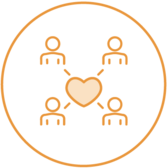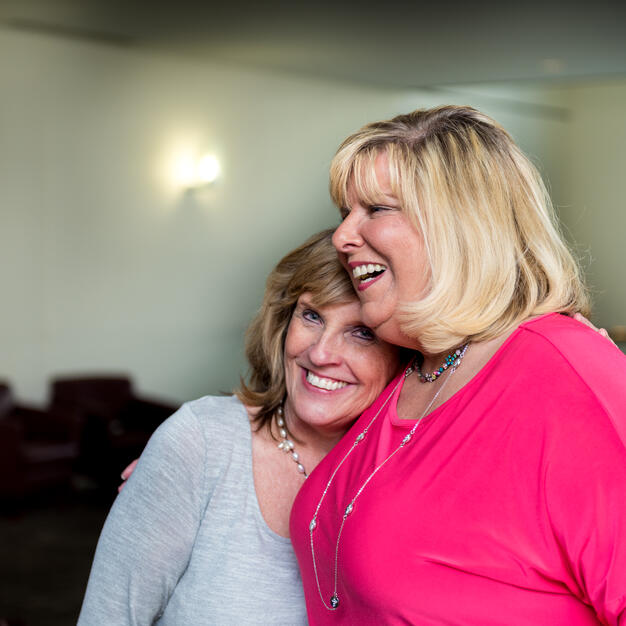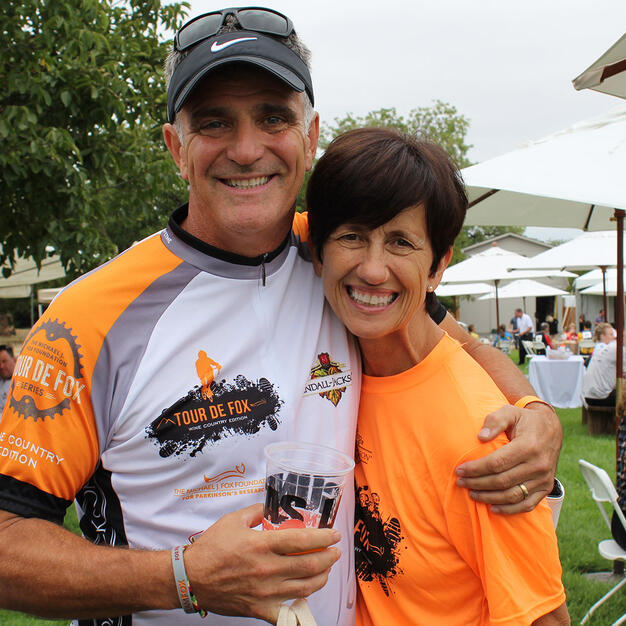Staying connected to others is more than just meaningful — it’s protective. Social connection is a key part of brain health and emotional well-being, yet Parkinson’s can sometimes make it harder to stay engaged.
From navigating changes in communication to managing the emotions that come with living with a chronic disease, many people with Parkinson’s — and their loved ones — find themselves unsure of how to stay socially active. But connection doesn’t have to be big or formal. Small moments of intentional interaction matter more than you think.
For many people living with Parkinson’s, this connection also comes through care partnerships — whether from a spouse, child, sibling, or close friend. Being a care partner is an act of connection in itself, and finding support for both people in that relationship can strengthen your emotional and social well-being.
The Importance of Connection
When Parkinson’s is part of your life, connecting with others in the community can help you feel less alone, lift mood, boost brain health and improve well-being. Rachel Dolhun, MD, DipABLM, shares key highlights about the Parkinson’s Buddy Network.

Tips to Stay Socially Connected
Positive social connections are essential to boosting brain health — especially when living with Parkinson’s. Building and maintaining relationships, both inside and outside the Parkinson’s community, can ease feelings of loneliness; reduce anxiety, stress, and depression; and help you feel supported, understood and more like yourself.
Follow these tips to help build and bolster your relationships:
- Recognize opportunities for connection. Staying emotionally and socially engaged is just as important as avoiding physical isolation — and can be a powerful tool for well-being.
- Reach out, even when it feels hard. Finding small moments throughout the day, whether for a simple text message or phone call to a loved one, or even making small talk with the person checking you out at the grocery store can help you feel more connected to others.
- Find community through shared experience. Whether you are active in support groups or PD-specific communities, or participate in volunteer work, sport, or creative projects, staying engaged in activities you care about can give purpose and connection beyond your symptoms.
- Balance alone time with connection. It’s okay to be introverted — just make sure solitude doesn’t turn into unintentional isolation.
Stay Connected, Stay Strong
-

Build a Care Team
Care partners play a major role in the well-being of a person with Parkinson's disease.
-

Build Connections
Our panelists discuss loneliness and isolation that can happen in Parkinson’s disease.
-

Find a Buddy
The Parkinson’s Buddy Network is an online community of people living with Parkinson's, their loved ones and care partners.
Check Us Out on Social Media
Follow us on social to stay connected and hear stories from community members.

Join a Support Group Near You
Support groups can help those with Parkinson’s to find connection and better manage the day-to-day difficulties of PD

Become a Fundraiser
Team Fox members have raised over $185 million for Parkinson's research since 2006. You too can be part of this passionate community of change-makers bringing us closer to a cure.